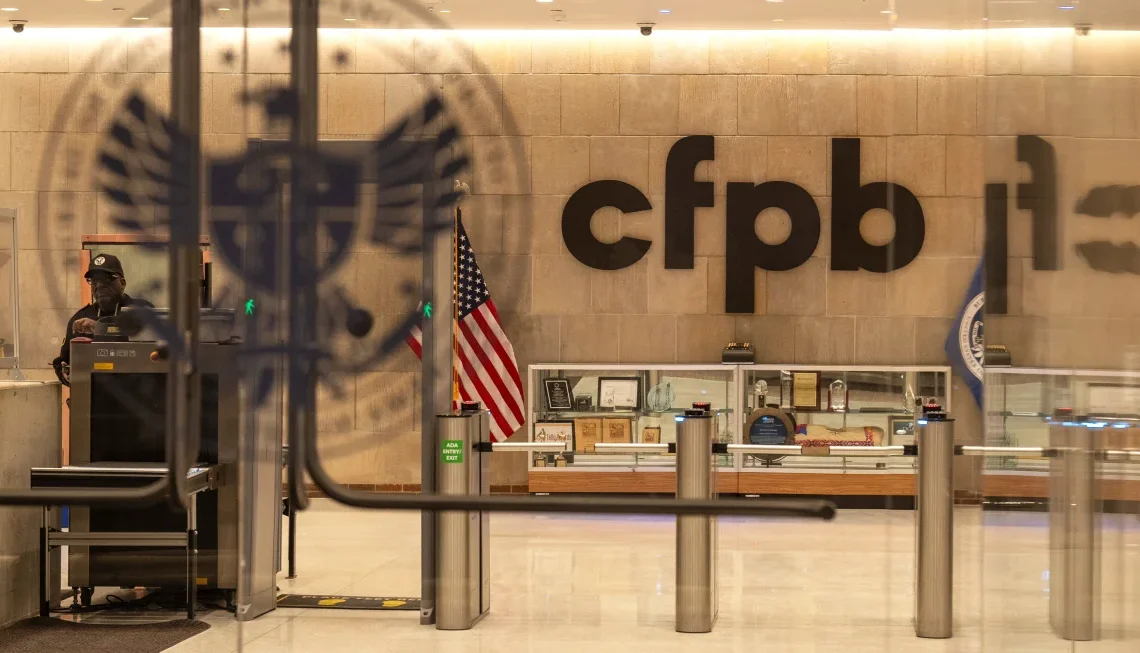In a bold and unexpected move, a top official at the Consumer Financial Protection Bureau (CFPB) has stepped down, sounding alarms over the agency’s direction. The CFPB enforcement lead resigns after accusing the agency of straying from its core mission of protecting consumers. The resignation was made public through a strongly worded email sent to colleagues, in which the outgoing leader criticized internal decisions and suggested the bureau is softening its stance on corporate accountability.
This high-profile departure is drawing sharp scrutiny from lawmakers, watchdog groups, and financial institutions alike.
Who Is the CFPB Enforcement Lead?
Background and Role
The now-former enforcement chief had served in the CFPB for several years, building a reputation as a tough regulator committed to holding banks, lenders, and debt collectors accountable. As head of enforcement, they oversaw investigations, negotiated major settlements, and pushed for penalties against companies accused of deceptive or abusive practices.
Influence Within the CFPB
The enforcement division plays a critical role in ensuring the CFPB fulfills its mandate to protect consumers from financial harm. The individual who held this role was widely regarded as a key driver of some of the agency’s most impactful actions, including cases involving predatory lending and fraudulent debt collection practices.
Why the CFPB Enforcement Lead Resigns
Details of the Resignation
On [insert date], the CFPB enforcement lead resigns via an internal email that quickly circulated among staff and the media. In the message, the official did not hold back, accusing the bureau’s current leadership of diluting enforcement priorities and undermining the agency’s founding principles.
They expressed concern that critical investigations were being deprioritized or softened and warned that consumer protections were taking a back seat to political and industry pressure.
Allegations of Mission Drift
The most striking part of the resignation was the claim that the CFPB is experiencing “mission drift”—a deviation from its original purpose. The former official highlighted several recent decisions that, in their view, weakened enforcement capabilities and allowed repeat offenders in the financial sector to avoid meaningful penalties.
This sharp rebuke is sparking fresh debate over whether the agency, created in the aftermath of the 2008 financial crisis, is losing its edge under current leadership.
The CFPB’s Response and Official Statement
How the Bureau Reacted
Shortly after news broke that the CFPB enforcement lead resigns, the agency released a brief statement thanking the official for their service while denying any shift in enforcement strategy. A spokesperson emphasized that the CFPB remains committed to consumer protection and continues to pursue robust enforcement actions.
However, insiders report that the resignation has created tension within the bureau, especially among staff concerned about political interference.
Broader Reactions from the Financial and Political Community
Lawmakers responded swiftly. Senate Banking Committee members from both parties issued statements—Democrats expressing concern, and Republicans calling for further oversight. Consumer advocacy groups backed the resignation’s message, warning that softening enforcement would embolden bad actors in the financial sector.
Meanwhile, industry voices suggested that the bureau is undergoing a necessary recalibration to focus on regulatory clarity and fairness.
What This Means for the Future of CFPB Enforcement
Immediate Operational Impact
The sudden vacancy at the top of the enforcement division may cause temporary slowdowns in open investigations. Some fear that ongoing cases may be quietly closed or settlements renegotiated. Leadership has not yet named an interim replacement, leaving uncertainty about the direction of the bureau’s enforcement priorities.
Long-Term Implications
The fact that the CFPB enforcement lead resigns so publicly raises the possibility of congressional hearings or an Inspector General review. It may also discourage whistleblowers or other senior officials from speaking up if they see misconduct or regulatory backpedaling. Whether this resignation triggers real reform or simply fades into bureaucratic memory remains to be seen.
The Bigger Picture: Is the CFPB Losing Its Way?
Comparing Past and Present Agendas
The CFPB was established in 2011 to hold financial institutions accountable after the global financial crisis. Under its first director, the bureau aggressively pursued enforcement actions and levied billions in fines. Recent years, however, have seen a decline in both the number and size of these actions, prompting concerns among watchdogs.
Pressure from Politics and Industry
Many former staffers say the CFPB has faced growing pressure from industry groups and elected officials who see the agency as too aggressive. The resignation letter implies that this pressure may now be influencing internal decision-making—an alarming trend for those who value independent regulation.
Conclusion
The fact that the CFPB enforcement lead resigns with such a strong warning is more than a personnel change—it’s a flashing red light for the agency’s future. As the financial industry evolves and risks to consumers become more complex, the CFPB’s ability to act swiftly and independently is critical.
This resignation shines a spotlight on whether the bureau is still fulfilling its core mission—or slowly backing away from the very consumers it was created to protect.
Never Miss a Beat! Subscribe for the Latest News & Exclusive Updates!


